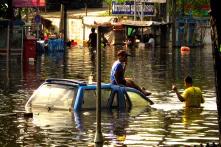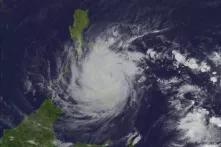Climate and Energy in Southeast Asia

This web-dossier explores climate and energy issues in Thailand and Southeast Asia. It contains analyses, features, research and other multimedia materials from regional experts, academics, journalists and our partners.
A call for ASEAN’s energy transition to be just
This article was first published on The Phnom Penh Post on 9 November 2022 <https://phnompenhpost.com/opinion/call-aseans-energy-transition-be-just>
Based on regional consultation* with partners who are CSOs and experts from across Southeast Asia, OXFAM believes ASEAN member states have an opportunity to ‘’super-charge’’ an energy transition that provides energy security and is inclusive and just. We recognise the significant challenges with high population growth, some of the world’s most dynamic growing economies and fastest energy demand and widening inequalities between people and between states. Within ASEAN 29 million people still lack access to electricity and 219 million cook with solid biofuels. The regional consultation, bringing together CSOs across the region, is co-organized by hbs Southeast Asia Regional Office, together with Oxfam Mekong Water Governance Program.
Paper Series on Energy Landscapes in Southeast Asia
E-Papers on NDCs of Southeast Asia
Climate of Change: The Struggle for Renewable Energy in Southeast Asia
at Heinrich-Böll-Stiftung, Berlin, November 8, 2017
Nguy Thi Khanh, GreenID, Vietnam, Suphakit Nuntavorakarn, Healthy Public Policy Foundation, Thailand, Kyi Phyo, Mekong Energy and Ecology Network, Myanmar
Moderation: Richard Fuchs, Journalist
Climate of Change: The Struggle for Renewable Energy in Southeast Asia - Heinrich-Böll-Stiftung
 Watch on YouTube
Watch on YouTube
Climate Change and Renewable Energy - Nguy Thi Khanh - Heinrich-Böll-Stiftung Southeast Asia
 Watch on YouTube
Watch on YouTube
Renewable Energy and Institutional Governance in Thailand with Suphakit Nuntavorakarn - Heinrich-Böll-Stiftung Southeast Asia
 Watch on YouTube
Watch on YouTube









































































